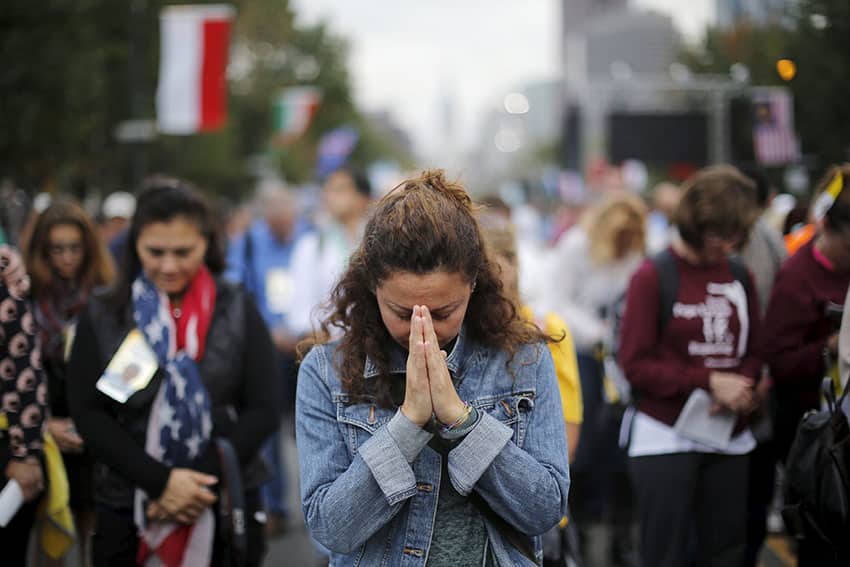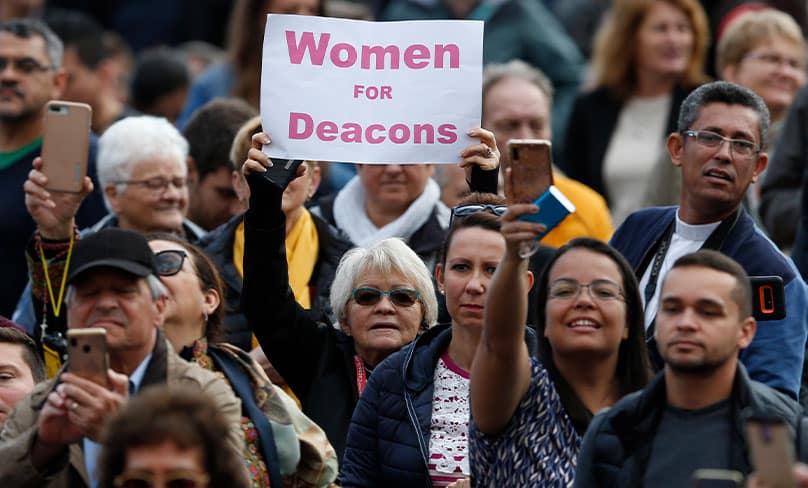
The release of the results of the International Survey of Catholic Women attracted a not insignificant amount of media attention last week, as we celebrated International Women’s Day.
The survey’s results were lauded by The Sydney Morning Herald, which reported that Catholic women “are hungry for reform.”
“They resent their lack of decision-making power, want to follow their consciences on sex and contraception, and think the church should be more inclusive of the diverse and the divorced,” Jordan Baker’s report read.
In other words, Catholic women think just like we do.
“… it was the largest study of Catholic women in the Church’s 2000-year history.”
The survey, conducted out of the University of Newcastle, received responses from 17,200 women from 104 different countries and is described by its authors as “one of the most extensive surveys of Catholic women ever undertaken.”
The Sydney Morning Herald said it was the largest study of Catholic women in the Church’s 2000-year history.
It may be the largest survey ever conducted, but it is hardly the most extensive.
Indeed, the survey was so limited in its focus that it appears to have found a way to be simultaneously the largest and smallest survey of Catholic women in the Church’s history.

Why do I say that? Survey participants—of whom I was one—were asked to rate the following statements on a scale from “strongly agree” to “strongly disagree”:
- My Catholic identity is important to me.
- I identify as an ecumenical Christian.
- I no longer identify as Catholic.
- I support reform in the Catholic Church.
- There is no need for any reform in the Catholic Church.
- Radical reform is needed in the Catholic Church.
- Without reform there is no place for me in the Catholic Church.
- Women should be fully included at all levels of church leadership.
- Clericalism (the misuse of authority and power by male clerics) is damaging the Catholic Church.
- Catholic social teaching is a good resource for social justice action.
- Climate change is an urgent challenge that the whole church must address.
- Language used in liturgy and church documents should be gender inclusive.
- Women need to have freedom of conscience with regard to their sexual and reproductive decisions.
- LGBTIQ persons must be fully included and respected in all church activities.
- The sacrament of marriage should be extended to same sex couples.
- Remarriage after civil divorce should be allowed.
- Women preachers should be able to give the homily during Mass.
- Women should be eligible for ordination to the priesthood.
- Church leaders are not doing enough to address the perpetration and cover-up of sexual abuse.
- Church leaders need to address other forms of abuse, including abuse of power and spiritual harm.
There were also six questions that were specifically COVID-19 related and one open-ended question where participants could describe in their own words their current relationship with the Church.
To my mind, this list does not make for an extensive survey but rather a reductionist one, because it reduces the interests of women to sex, power (and the abuse of power) and women’s roles in governance and liturgy.

There were no questions on prayer and worship, on service to the Church and the community, on vocation or sacramental life.
There was nothing about professional or family life, on mothers or carers, or any of the million other concerns and interests of Catholic women.
The survey suffered from the same problem as did the motions about the “equal dignity of men and women” at the Plenary Council; they used a “deficit model” of womanhood that sought only responses about disappointments and not joys.
“how much different would the survey have looked if the statements were things like: ‘I find consolation in my parish community’; ‘I have had positive experiences of the priests I have encountered’ … and so on.”
All but a few questions were about what women wanted to see changed in the church or what we were unhappy about; there was nothing that gave women the opportunity to express what we love about being Catholic.
For example, how much different would the survey have looked if the statements were things like: “I find consolation in my parish community”; “I have had positive experiences of the priests I have encountered”; “my life is better because I am part of the Catholic Church” and so on.
What’s more, the survey was ambiguous in parts.
The concept of reform, on which four of the 26 questions were based, is undefined.

Does the Church need reform? Well, it depends what you mean. When people cite the motto ecclesia semper reformanda est [the church must always be reformed], I wholeheartedly agree if they mean we need continual conversion to Christ.
On the other hand, if your definition of reform is to change the church’s doctrines on marriage and sexuality (the subject matter of another four questions), then I would have to strongly disagree.
I would also have to strongly disagree if your version of reform had to do with changing the Mass so that gender-neutral language was used, women could preach and/or be ordained to the priesthood (another three questions.)
“For example, some of the qualitative responses about the excusing of family violence against women, the marginalisation many women feel in the Church and the longing for community are worthy of attention and careful reflection.”
For these reasons, I am disappointed with the survey and how it was reported in the media.
It doesn’t mean that we throw the baby out with the bathwater; there are many good learnings in there, as you would expect from the calibre of academics involved.
For example, some of the qualitative responses about the excusing of family violence against women, the marginalisation many women feel in the Church and the longing for community are worthy of attention and careful reflection.
It would have been nice, however, if this extensive survey had extended to the full involvement of women in the Church, and not just the narrow focus of the most contentious issues.
